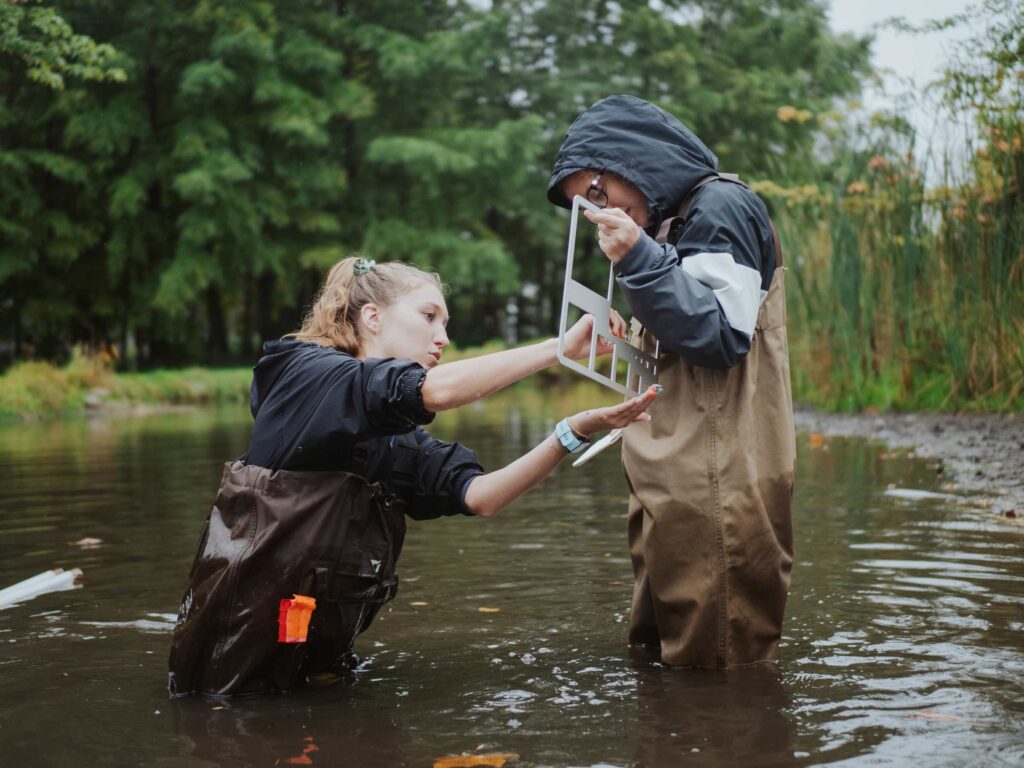Nonprofit
Finally, what can you do with an environmental science degree in the nonprofit sector? How can you use this degree to influence thought, to impact actions, and to effect sustainable change?
There are many global nonprofit organizations, such as the World Wide Fund for Nature and the Rainforest Alliance. These organizations raise awareness about issues that affect the environment in all parts of the world.
But there are also many great nonprofits that are working to improve very niche aspects of the environment. They might be studying particular organisms, such as a certain subset of plant. They might be serving a very particular locality. For instance, the Lilly Center for Lakes and Streams exclusively studies the waterways of Kosciusko County in Indiana. Or they might be tackling a specific topic — preserving habitats, rehabilitating degraded areas, encouraging people to get active out in the environment, etc. The opportunities in the private sector are plentiful, both large scale and small.
Purposeful Jobs with Environmental Science Degrees
Many of the Grace College environmental science program graduates were once asking this question, but after hands-on experience and intentional mentorship from experts in the field, they have found the right fit for them.
Since the program’s inception, Grace students have gone into all of these areas of work – from environmental policy in Washington D.C. to graduate school at The Ohio State University. We’ve watched our graduates go on to law school to work as environmental lawyers. We’ve had students become environmental consultants to work at the Department of Natural Resources. We’ve had students serve as city stormwater coordinators, wildlife controllers, teachers, agriculturalists, and environmental supporters in the military.
Learn more about our environmental science program, and apply today to take the first step of discovering which environmental job is right for you.






